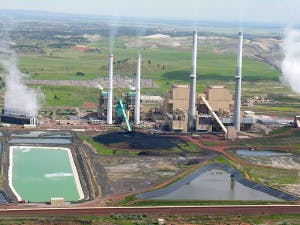
Matt Petryni, clean energy program manager at Renewable Energy Sources for Sustainable Communities, said ditching coal power in a city like Bellingham simply makes sense.
“We like to think of Bellingham as a leader in sustainability and getting between 30 and 40 percent of our energy from coal just isn’t a good fit with that role,” Petryni said.
The binding agreement to retire coal-sourced energy is a big win for activists who, supported by the Sierra Club, began a coal-free campaign called “Beyond Coal” to urge PSE to make the switch from coal to renewable energy.
The campaign garnered over 10,000 signatures on a petition to discourage coal power. The petition was delivered in 2014 to Puget Sound Energy’s legislative office in Olympia.
Senior Julianna Fischer, president of Students for Renewable energy, said she was excited when she heard the plant would be closing.
"These are the kind of shifts that are really important and the energy transition that we need to take place as a society,” Fischer said.
Renewable Energy Source’s goal is to push PSE to convert the closing plant into a renewable energy facility and retrain employees in that field, Petryni said.
The closing facility has been listed as one of the largest polluting coal plants in the U.S. and ranked ninth in carbon dioxide emissions, according to a 2009 report by Environment America using data from the Environmental Protection Agency.
The other issue is finding a new source of energy to account for the energy demands PSE used coal to fulfill. Petryni said the transition from coal-powered energy might involve conserving more energy and improving energy efficiency to make up the energy deficit from coal; it could potentially require more renewable energy sources.
Although switching to cleaner energy is more expensive for PSE, Petryni said the coal plant shutdown will bring more certainty to utility rates because compensation costs for pollution damage caused by the coal plant will no longer fall on ratepayers.
“We can figure out the cost benefit and have a good, clear idea of what this will mean in utility rate costs,” Petryni said.





